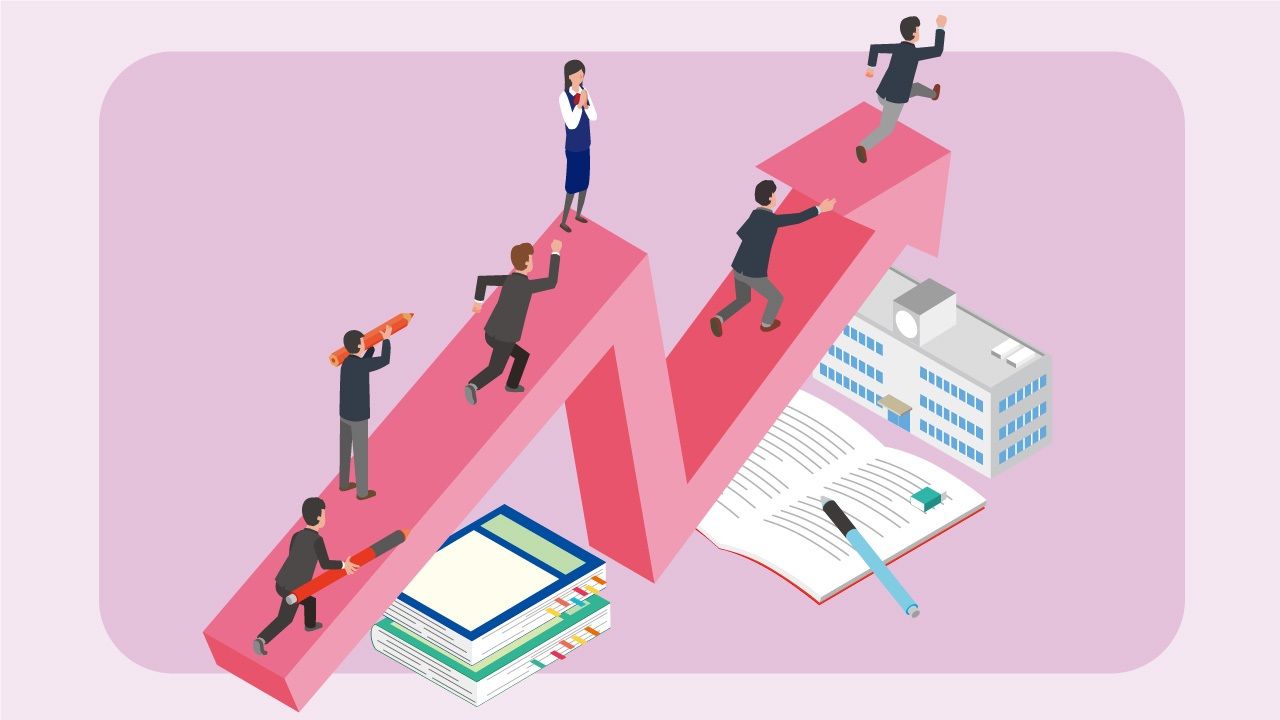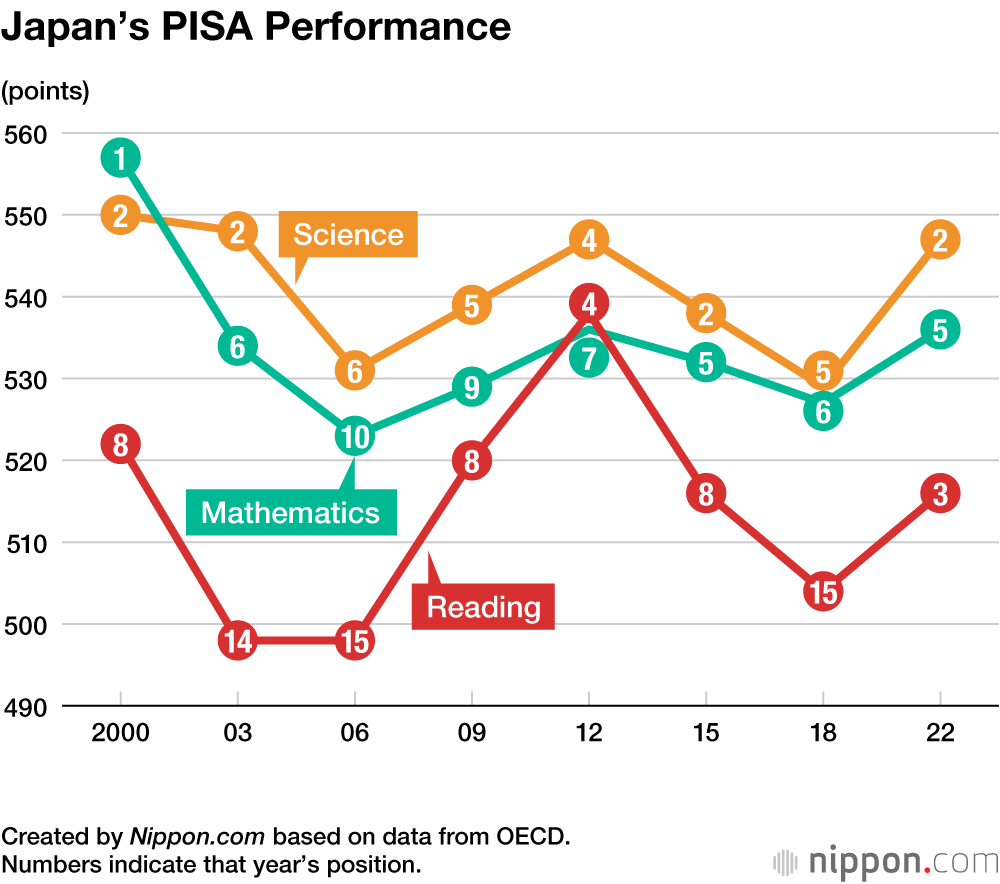
Japan Soars to Third Place in OECD Reading Survey
Education- English
- 日本語
- 简体字
- 繁體字
- Français
- Español
- العربية
- Русский
Japan’s performance in the 2022 Program for International Student Assessment showed the country making a sharp recovery from its equal lowest ever position of fifteenth in the previous 2018 survey, rising to an all-time high of third for reading. Japan also improved its performance for science, rising from fifth to second, and climbed in mathematics from sixth to fifth, meaning its ranking remained at the top level globally. Singapore came top in all three areas. In 2018, Beijing, Shanghai, Jiangsu, and Zhejiang (China) had held the top spots, but due to school closures during the COVID-19 pandemic, the region did not participate this time. Russia and Belarus were not allowed to participate.
The PISA survey, which has been conducted by the OECD every three years since 2000, was postponed by one year this time due to COVID-19 and was the first to be held after the pandemic. While the academic performance in many countries declined, Japan maintained its level. In its analysis, OECD suggested that “this may be due to the period for school closures having been shorter than for other countries.”
Japan’s average scores increased in all three areas compared to the previous survey, with reading rising by 12 points to 516, mathematics by 9 points to 536, and science by 18 points to 547. The percentage of students with low scores in reading comprehension and science decreased, while the percentage of high-scoring students in mathematics and science rose.
In the second survey conducted in 2003, Japan’s reading comprehension scores tumbled from eighth to fourteenth; this drop was dubbed the “PISA shock.” The scores fell further in the 2006 survey, putting Japan in fifteenth place and leading to increased criticism of the education policy at the time of yutori kyōiku, or “education that gives children room to grow,” which gave more weight to independent thinking. Following that drop, increases in the amount of content taught under the curriculum guidelines and the number of classes held led to a performance recovery. However, when Japan’s reading comprehension skills fell once more to fifteenth place in the 2018 survey, there was a renewed sense of urgency. Since 2021, curriculum guidelines focusing on “active learning,” where students deepen their academic understanding independently and interactively, have been implemented in junior high schools. Classes tailored to PISA question trends have also been developed and these actions are thought to have had a positive outcome on the survey results this time.
(Translated from Japanese. Banner illustration © Pixta.)
